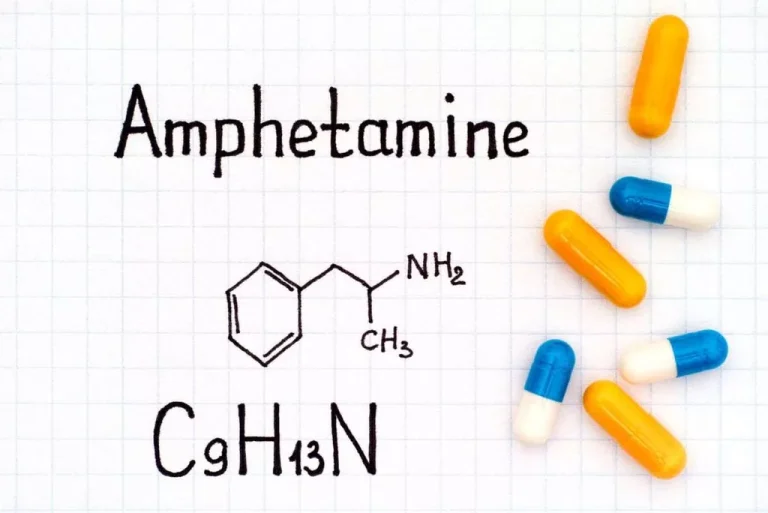
In particular, early exposure can heighten the risk of gaining a physical dependency on alcohol, especially in a familial setting. However, scientists also argue that genetics play a significant role in the risk of developing alcoholism and the likelihood of hereditary effects. The more risk factors a person has, the greater the chance of developing an alcohol use disorder or addiction. Those who have a family history of alcoholism have a higher risk of developing a drinking problem. Studies show that alcoholism is approximately 50% attributable to genetics. Only about 50 percent of genetics is responsible for the risk of developing AUD.
The Role of Environment in Alcoholism
If you are seeking treatment for problem alcohol use in yourself or a loved one, The Recovery Village has locations across the country and is here to help. When someone decides to drink for the first time, particularly if alcoholism runs in their family, they are putting themselves at risk of becoming addicted. For example, a review of 12 different adoption and twin studies found that genetics explain roughly 50% of alcohol use disorder developments, showing a strong link between alcoholism and genetics. The gene is the main physical unit that passes inheritance from a parent to their child. “Heredity” refers to a mutation in a person’s genes that is passed from generation to generation. Common hereditary mental illnesses include autism, attention-deficit hyperactivity disorder and depression.

Why Alcoholism Runs in Families

Hereditary alcoholism specifically refers to the passing down of alcoholism from one generation to another through genes. Genetic alcoholism, on the other hand, encompasses the broader influence of genetic factors on addiction susceptibility. Resurgence Behavioral Health takes a holistic approach to alcohol addiction treatment.
What gene is responsible for increased AUD risk?

While genetics play a role in the development of alcoholism, it is essential to recognize that they are not the sole determinants. Environmental influences, such as peer pressure, cultural norms, and socioeconomic factors, can significantly impact an individual’s relationship with alcohol. Personal experiences, traumatic events, and mental health conditions, such as anxiety or depression, can also contribute to the development of alcoholism. Those with a history of alcoholism in their family have the highest risk of becoming alcoholics. If you have multiple relatives with alcohol addictions or other substance use disorders, you may have inherited the genes that put you at risk. The more family members (related by birth) you have with an alcohol problem, the higher your risk.

Living with an Alcoholic Family Member
Several different single nucleotide polymorphisms (SNPs) of CHRM2 are believed to increase the odds of developing alcohol dependence, which can lead to alcoholism and influence its heritability. Concerns about alcohol consumption should be addressed by a medical professional. Feeling out of control in regard to drinking and feeling as though one drinks too much are indicators that there is a problem. Medically supervised detox programs and evidence-based rehabilitation programs are available that specialize in treating AUD. In the future, there may be genetic therapies that help people control how much alcohol they consume; for now, behavioral therapies have proven very effective at managing these chronic health conditions.
Find Treatment for Alcohol Use Disorder
- However, scientists also argue that genetics play a significant role in the risk of developing alcoholism and the likelihood of hereditary effects.
- In fact, new data suggests that there may be even more genetic variants involved in alcohol dependence.
- The information we provide is not intended to be a substitute for professional medical advice, diagnosis or treatment.
- Similarly, while there is a genetic component to alcohol tolerance, there have been largely inconclusive results about an alcohol dependence gene being hereditary.
One of the most common questions people have surrounding alcoholism is whether or not it’s genetic, and if so, what happens when alcoholism runs in the family. At Family First Intervention, we have worked hard to educate families on alcoholism and recovery from alcohol addiction. We have decades of experience in helping families take the difficult yet necessary first steps toward alcohol recovery.
What is the difference between genetic and hereditary alcoholism?
Family attitudes towards alcohol, early alcohol exposure, and individual choices shape the addiction risk, intersecting with genetic factors. While genetics may increase an individual’s vulnerability to alcoholism, it is crucial to remember that they do not determine one’s destiny. With the right support, resources, and treatment, individuals can break the cycle of alcoholism and overcome their genetic predisposition. In addition to medication assisted treatment, a patient’s care can include substance abuse counseling, mental health therapy and psychiatry. The previous COGA studies have provided critical information to better understand the genetic and biological underpinnings of AUD.
In addition to affecting alcohol addiction risks, these genetic factors may lead to increased alcohol consumption and heighten the risk of alcohol-related diseases, including certain cancers. is alcoholism inherited In fact, new data suggests that there may be even more genetic variants involved in alcohol dependence. There are also behavioral genes passed down that could influence a propensity for alcoholism. Mental illnesses, such as depression and schizophrenia, are more common in people with a family history of these disorders. People with mental illness have a higher risk of turning to substance abuse as a way of coping. Mental disorders can be hereditary (and environmental), which partially illuminates the complex link between genetics and addiction.
Children whose parents were open to underage drinking have an increased risk of developing alcohol addiction during adolescence or adulthood. This can happen through learned behavior or by having easy access to alcohol. The gene allows conclusions to be made about how a person’s brain perceives alcohol. However, researchers need more https://ecosoberhouse.com/ information before concluding about alcohol tolerance and CYP2E1. Other genetic factors and environment likely play a bigger role than any single gene in whether or not a person develops AUD.
Addressing Alcoholism: Prevention and Treatment
- Among the behavioral traits parents can pass on to their children is a predisposition toward alcohol abuse and addiction.
- For instance, parental alcohol abuse can be linked to other adverse circumstances, such as abuse, neglect and poverty.
- Yet, environmental factors could also be a factor in many of those cases.
- However, environmental and social factors can increase or reduce this genetic risk.
The information we provide is not intended to be a substitute for professional medical advice, diagnosis or treatment. It should not be used in place of the advice of your physician or other qualified healthcare providers. If you have a genetic risk of developing an alcohol addiction and have exhibited signs of this disorder, it’s important to seek treatment as soon as possible. Counseling and support can help tackle social and environmental factors that could contribute to an alcohol problem in the future. If you or a loved one has already developed a problem, there are outpatient and inpatient programs that can help. Among those abusing alcohol, people who are genetically predisposed to alcoholism have a higher risk of developing an alcohol use disorder.
